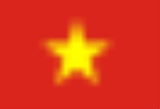
Judo at the 2005 Southeast Asian Games
Encyclopedia
Judo
at the 2005 Southeast Asian Games
took place in the Mandaue Coliseum, Mandaue City
, Cebu, Philippines
. The participants competed for 14 gold medal
s with seven different weight categories in both the men's and women's competitions.
Gold and silver medals in each weight class were determined by a single-elimination bracket. There was a repechage
for those who are eliminated by one of the eventual semifinalists. Since there are four semifinalists, this means that four of the losers of the round of 32 (i.e., 25%) faced four of the losers from the round of 16 (50%). The winners of these matches faced the four judokas who have lost in the quarterfinals. The winners, then, of these four matches faced each other to narrow the repechage field down to two judokas. Until this stage, the repechage has been segregated into two distinct halves, with each successive competitor facing another one from the same half of the original bracket; but each of the two judokas who emerge from the repechage challenged the loser of the other bracket's semifinal. (Since these two always come from opposite halves of the original bracket, they could not have faced each other already.) The winners of these two matches were each awarded a bronze medal, making judo unusual among Olympic events in not determining a single third-place finisher.
----
Judo
is a modern martial art and combat sport created in Japan in 1882 by Jigoro Kano. Its most prominent feature is its competitive element, where the object is to either throw or takedown one's opponent to the ground, immobilize or otherwise subdue one's opponent with a grappling maneuver, or force an...
at the 2005 Southeast Asian Games
2005 Southeast Asian Games
The 23rd Southeast Asian Games were held in the Philippines from November 27 to December 5 in 2005. The games were participated by the eleven nations of Southeast Asia. This was the first time that the opening and closing ceremonies were held in a large open field, despite the fact that Manila...
took place in the Mandaue Coliseum, Mandaue City
Mandaue City
The City of Mandaue is a city in the province of Cebu in the Philippines. It is one of the three urbanized cities in the island and forms a part of the Cebu Metropolitan area. Mandaue City is located on the middle eastern coastal region of Cebu, bordering to its right-side are Mactan Island where...
, Cebu, Philippines
Philippines
The Philippines , officially known as the Republic of the Philippines , is a country in Southeast Asia in the western Pacific Ocean. To its north across the Luzon Strait lies Taiwan. West across the South China Sea sits Vietnam...
. The participants competed for 14 gold medal
Gold medal
A gold medal is typically the medal awarded for highest achievement in a non-military field. Its name derives from the use of at least a fraction of gold in form of plating or alloying in its manufacture...
s with seven different weight categories in both the men's and women's competitions.
Gold and silver medals in each weight class were determined by a single-elimination bracket. There was a repechage
Repechage
Repechage is a practice amongst ladder competitions that allows participants that failed to meet qualifying standards by a small margin to continue to the next round.- Types of repechage :...
for those who are eliminated by one of the eventual semifinalists. Since there are four semifinalists, this means that four of the losers of the round of 32 (i.e., 25%) faced four of the losers from the round of 16 (50%). The winners of these matches faced the four judokas who have lost in the quarterfinals. The winners, then, of these four matches faced each other to narrow the repechage field down to two judokas. Until this stage, the repechage has been segregated into two distinct halves, with each successive competitor facing another one from the same half of the original bracket; but each of the two judokas who emerge from the repechage challenged the loser of the other bracket's semifinal. (Since these two always come from opposite halves of the original bracket, they could not have faced each other already.) The winners of these two matches were each awarded a bronze medal, making judo unusual among Olympic events in not determining a single third-place finisher.
Medal winners
| Category | Gold | Silver | Bronze |
|---|---|---|---|
| Men's < 55 kg. |
Nathaniel Garcia (  Philippines) Philippines) |
Toni Irawan (  Indonesia) Indonesia) |
Franco Teves (  Philippines) Philippines) Aung Tun Kyaw (  Myanmar) Myanmar) |
| Men's < 60 kg. |
Tran Van Doat (  Vietnam) Vietnam) |
Suksuwan Chanch (  Thailand) Thailand) |
Gan Eldy (  Indonesia) Indonesia)---- Daniel Pedro (  Philippines) Philippines) |
| Men's < 66 kg. |
Peter Taslim (  Indonesia) Indonesia) |
Bodin Panjabutra (  Thailand) Thailand) |
Aristotle Lucero (  Philippines) Philippines) Nguyen Quoc Hung (  Vietnam) Vietnam) |
| Men's < 73 kg. |
Gilbert Ramirez (  Philippines) Philippines) |
Alexander Ralli (  Thailand) Thailand) |
Johanes Taslim (  Indonesia) Indonesia)---- Nguyen Tran Minh Nha (  Vietnam) Vietnam) |
| Men's > 78 kg. |
Ira Purnamasari (  Indonesia) Indonesia) |
Khin Myo Thu (  Myanmar) Myanmar) |
Dinh Thi Diem Tuyen (  Vietnam) Vietnam)---- Promtaeng Niramon (  Thailand) Thailand) |
| Women's < 63 kg. |
Nguyen Thi Nhu (  Vietnam) Vietnam) |
Wassanaporn Samthong (  Thailand) Thailand) |
Astie Gay Liwanen (  Philippines) Philippines) Thandarwin (  Myanmar) Myanmar) |
| Women's < 70 kg. |
Karol karen Solomon (  Philippines) Philippines) |
Aung Lay Kalyar (  Myanmar) Myanmar) |
Nguyen Thu Din (  Vietnam) Vietnam)---- Monrudee Krongthanee (  Thailand) Thailand) |
| Women's > 78 kg. |
Patchare Pichapat (  Thailand) Thailand) |
Ruth Dugaduga (  Philippines) Philippines) |
Cliffia Sulistio (  Indonesia) Indonesia)Nguyen Thi Anh Ngoc (  Vietnam) Vietnam) |
External links
----

